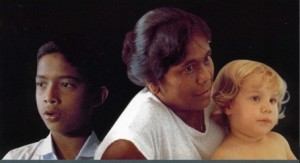Emerging Narratives: Illuminating Breakthrough Experiences of Community, A Narrating Change Seminar
Friday, September 27th, 10:00am, @The Graduate Center, 365 Fifth Ave. Room 8106
repost from Center for the Humanities:
(RSVP Information Below)
Join us for our opening meeting, on Friday, September 27, for an open discussion, and creating possible working groups that could collaborate throughout the year. We are particularly interested in discussing potential or ongoing pedagogical and research projects that focus on questions of community formation; that re-think the relationship between “the classroom” and “the community”; and/or that work to reconstitute the CUNY community. We welcome proposals and possibilities from faculty and students working and teaching across all levels of the CUNY campuses. For our first meeting, we propose to think through ways that narrative can contribute to these processes of community formation, and also to share narratives from our own experiences of creating community through our pedagogical and intellectual practices.
During the 2013-2014 academic year, the Narrating Change Seminar in the Humanities will present a series of meetings, discussions, and working groups to address—in writing, speaking, and publishing—questions regarding the community college as a location and agent of change. Our goal will be to foster collaborations between faculty and students from across the different CUNY campuses around these questions, as part of a larger focus on the question of narrative and community building.
While the community college will be a point of focus, we also intend to open up the larger question of what “community” means for our pedagogical and intellectual practices; what sort of an intellectual community CUNY is (or could be); and how narratives help to shape, constitute, and transform communities.
Because space is limited, please RSVP to any of the seminar co-chairs: Tony Alessandrini [tonyalessandrini@gmail.com]; Colette Daiute [CDaiute@gc.cuny.edu]; Svetlana Jovic [SJovic@gc.cuny.edu]; Phil Kreniske [pkreniske@gc.cuny.edu].
For more information on the seminar, go to http://centerforthehumanities.org/seminars/narrating-change.




